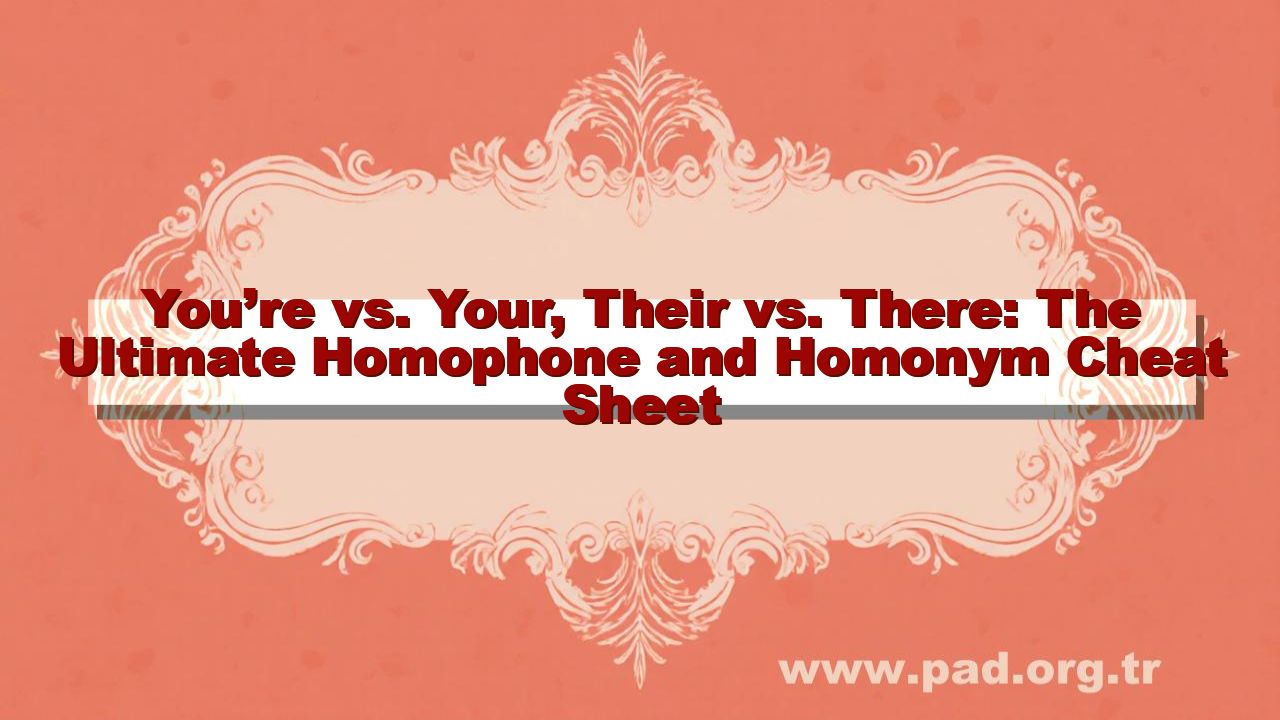Mixing up homophones—words that sound alike but have different meanings and spellings—is one of the most common mistakes in English. Mastering these tricky pairs, especially you’re vs. your and their vs. there, immediately improves the clarity and professionalism of your writing. The key is knowing what the word is rather than just what it sounds like.
‘You’re’ vs. ‘Your’ 🧑🤝🧑
This pair causes widespread confusion because they are used frequently in conversational English, but they serve entirely different grammatical purposes.
You’re (Contraction)
The simplest rule is to remember that ‘you’re’ is always a contraction of “you are”. If you can replace the word in the sentence with “you are,” then you should use ‘you’re’.
- Example: You’re (You are) going to be late.
- Example: I love that jacket you’re (you are) wearing.
Your (Possessive Determiner)
‘Your’ is always a possessive determiner (a type of adjective) used to show ownership or possession. It must be followed by a noun or a gerund (an -ing word acting as a noun).
- Example: Is that your phone? (Phone is the noun).
- Example: Your quick thinking saved the day. (Thinking is the gerund/noun).
‘Their’ vs. ‘There’ vs. ‘They’re’ 🗺️
This is the tricky trio. When confused, always test the word against the three definitions below.
Their (Possessive Determiner)
‘Their’ shows possession belonging to two or more people (plural). It must be followed by a noun.
- Meaning: Belonging to them.
- Example: The students brought their textbooks to class.
There (Adverb/Expletive)
‘There’ has two main uses, both related to location or existence.
- Location (Adverb): Referring to a specific place. Hint: It contains the word “here.”
- Expletive (Pronoun): Used to introduce a sentence, often with forms of “to be” (e.g., “There is,” “There are”).
- Example (Location): Please put the box over there.
- Example (Expletive): There is no reason to worry.
They’re (Contraction)
‘They’re’ is always a contraction of “they are”. If you can replace the word in the sentence with “they are,” use ‘they’re’.
- Meaning: They are.
- Example: They’re (They are) planning a surprise party.
Bonus Homophone Cheat Sheet 🤯
Here are a few other common pairs that often lead to mistakes:
| Word Pair | Meaning 1 | Meaning 2 |
|---|---|---|
| To vs. Too vs. Two | To: Preposition or part of an infinitive verb (to run). | Too: Adverb meaning “also” or “excessively” (too much). Two: The number 2. |
| It’s vs. Its | It’s: Contraction for “it is” or “it has.” | Its: Possessive form of “it” (e.g., its color, its job). |
| Accept vs. Except | Accept: Verb meaning to receive or agree to. | Except: Preposition meaning excluding or apart from. |
| Affect vs. Effect | Affect: Verb, meaning to influence (The weather affects the mood). | Effect: Noun, meaning the result or outcome (The effect was immediate). |


